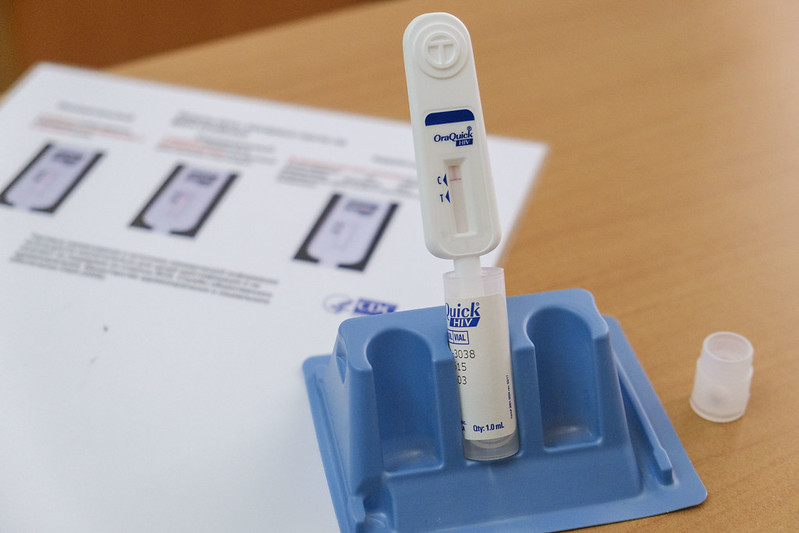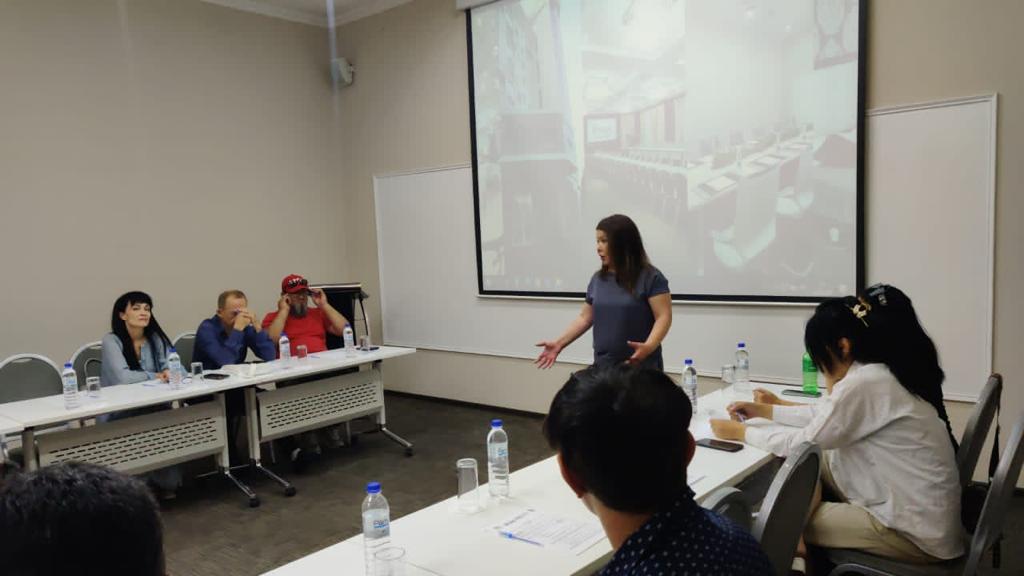People who use drugs deserve access to quality health and social services
October 20, 2023

As of January 1, 2022, the Republican Center of Psychiatry and Narcology reports that 8,226 people who use drugs are registered. Alarmingly, the number of young people using new types of drugs is on the rise. It's estimated that more than 20,000 people in Kyrgyzstan have drug dependence.
Given the evolving situation and the increase in young people using new drugs, non-governmental organizations are becoming pivotal in preventing and supporting those with drug dependence. The Public Fund "Ganesha" is one such organization. It works within the UNDP project "Effective HIV and TB control in the Kyrgyz Republic", funded by the Global Fund to Fight AIDS, Tuberculosis and Malaria, and collaborates with a consortium of NGOs.
"Our organization was funded for young girls fighting with drug dependence. Young people are inherently more susceptible to drugs. We aim to foster a supportive legal environment where people aren't deterred from seeking necessary medical and legal aid. Drug dependence isn't a criminal act, it's a chronic disease. People with this condition need full access to medical and legal services",remarks Tatiana Musagalieva, director of PF "Ganesha".

Tatiana Musagalieva, director of PF "Ganesha"
Opioid agonist therapy (OAT) has proven invaluable for treating people who use drugs and facilitating their reintegration into society. This program, functioning in Kyrgyzstan for over two decades, has repeatedly demonstrated its effectiveness.
A former client of the program, Aizhamal (name altered for privacy), shared her journey:
"The program was my lifeline. Years ago, I was among its first clients. Despite seeking treatment from various professionals, relapse was inevitable. But then this program was launched in Kyrgyzstan. The multidisciplinary team at the Republican Center of Psychiatry and Narcology took a holistic approach to my treatment. With the combined efforts of therapists and drug specialists, I was able to break free from drugs. I was reunited with my family, embraced motherhood, and rediscovered a life free from addiction".
Currently, 746 people are beneficiaries of the OTA program. They receive medical care from the National Centre for Psychiatry and Narcology and regional medical family centres. The program is also extended to prisons.
Dinara Duishenova, the UNDP program specialist for the "Effective HIV and TB control" project stresses the urgency of collaborative efforts:
"To address contemporary challenges, it's imperative to draft treatment protocols for drug dependence, establish methodological and evidential foundations, and enhance the opioid agonist therapy, which currently benefits 746 people. They are rightful members of society and deserve quality treatment and a dignified life. Notably, whereas we once dealt with a singular type of drug, we now confront hundreds. The entire support system for people who use drugs must adapt to these new realities".

In 2022, the Cabinet of Ministers of the Kyrgyz Republic accepted the Anti-Drug Programme, outlining the national strategies to decrease the supply, demand, and detrimental effects of drugs. Additionally, the draft of programme for HIV infection and viral hemocontic hepatitis for 2022-2026 specifies crucial indicators for a holistic prevention service package targeting key populations, encompassing opioid agonist therapy (OAT).
UNDP is committed to fostering drug dependence prevention and treatment programs through the National Centre for Psychiatry and Narcology and NGOs. In August 2023, Kyrgyzstan welcomed international experts for the first time. These professionals trained representatives from medical organizations and NGOs in assisting people who use drugs. This initiative aims to elevate the services for people who use drugs and prevent HIV.

 Locations
Locations